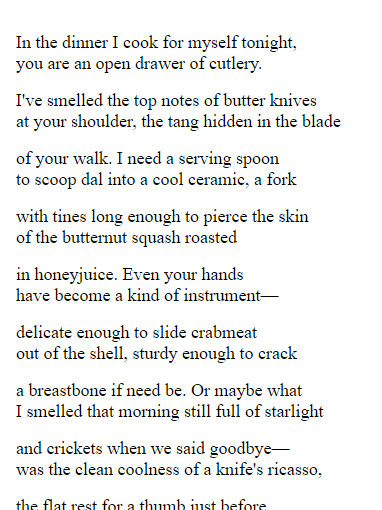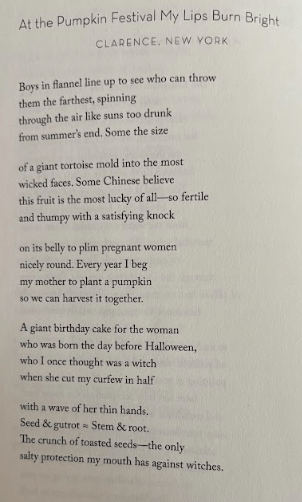Reading “Heaven in Miniature” for the first time definitely had me confused. Having to go from two different religions in a poem is very confusing. For you this also might have been confusing, but let me break it down for you. When you first look at the poem you see the line “for Tina Wang (1984-2001),” and Tina Wang was one of Szybist’s students and in an interview Szybist said that Wang told her that she did not believe in any version of the afterlife as they were never realistic. This stuck with Szybist when Wang soon died in a fatal car crash. When writing the poem, she wanted to create a version of the afterlife that seemed realistic to Wang with last line “counts and counts and finds that he lacks nothing,” which represents going through the moments in your life.
Szybist alludes to two religions in the poem: Christianity and Greek mythology. Szybist grew up very religious as a child, which we can see when she mentions “a white-haired, white-robbed shepherd calls out to you, unbuckles your sandaled feet.” The shepherd in question is God telling those before entering Heaven to take off your shoes because where you enter is holy ground. Szybist then switches to Greek mythology when talking about the story of Odysseus in the poem “The Odyssey” when Odysseus dies. After Odysseus dies, he is brought to the afterlife (“the land looks strange, unearthly strange and unforgivable”). She then goes onto explain how Odysseus sees “treasure that sits around him like spilled confetti.” This line is my favorite of the whole poem of how Szybist refers to our memories and our past life as “treasure” and “confetti,” as confetti is meant to symbolize happiness. The rest of the poem talks about Odysseus looking at the moments of his past, but not remembering them.
The reason Szybist uses the story of Odysseus in the poem is to talk about what seemed real in the afterlife to Wang and herself, seeing the memories of our past and what made us happy. She also refers to the idea that the spiritual process of humans for many years has never changed as Odysseus story takes pace way before the birth of Jesus and Christianity, but the idea of Odysseus arriving in the afterlife is something that is painted by many Christian denominations. The idea that humans have believed in is the idea that when we die, we will go through the moments of our live, the memories of what we loved and what brought us to this moment before we die. This idea is what sets the ground work for the “realistic” picture of the afterlife for Szybist, an idea that many humans have been able to relate and believe in for a very long time, and if many humans can believe in this idea, than maybe Tina Wang could believe in such an idea. I think for Szybist to be writing this elegy for her student shows just how deep of a connection the two had, especially if they were able to talk about such deep topics like death and the afterlife. For many, losing one that is close to you can be hard and many people cope and deal with grief in different ways. In my opinon, I do think that writing this poem for Tina Wang, some who was very close to her, was a way to cope by imaging that Wang is now in a better place, a better place that what Wang wouldn’t believe in.


